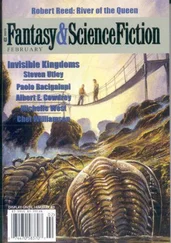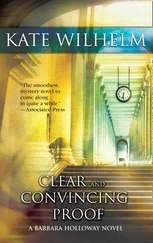While Ilan spoke, and he was speaking in a way free from any suggestion of pathos, I realized that this was different from any debriefing I had ever been to. Such words, clear and simple, could never march together with analyses of tactics and summing up of battles. They simply had no place to be said, and no commander had ever heard his people describing their mission in terms like these. And I looked at Ilan Ramon the astronaut of 2001, and recalled this fine young man of twenty years before, and thought I probably should have taken my place even farther back in the formation, to strengthen the tail. I was number six in line, and Relik and Ramon were seven and eight, and I probably should have flown as number seven or eight. But no one can fix the past according to deep secrets disclosed twenty years after, and anyway, Relik and Ilan were much more capable on the F-16 than I was, and better shots. I flew there for a wholly different reason.
AS ILAN PROMISED US, he didn’t indulge in long descriptions of the flight but had something special to say. “These days I am an astronaut, but the interesting thing I bring here tonight is not space, but our Jewish nation. We in Israel are sometimes too closed inside our small pasture and forget that we are but part of the great Jewish people.
“I met some Holocaust survivors in America. I asked them what I should take with me into space, something symbolic that might connect that dark time to what I do now. And one of them, an eighty-year-old man with a simple knowledge of English, came over and handed me a letter. Let me read it to you.”
Ilan drew a page out of his pocket and read it to us: “To the glory of the people of Eretz Israel and the diaspora, and to Mr. Ilan Ramon. I would propose that you take into space with you as a symbol, the dirty towel of my seven-year-old daughter, which she made into a doll. I wouldn’t give my daughter’s doll to just anyone, but she took it with her to Auschwitz, and her ashes are still there. But you, Ilan, when you are close to heaven, open it and let them there apologize for not answering our prayers. I still keep asking, ‘Why? Why?’” It was signed “Leo Agen.” Ilan folded the page and put it back in his pocket.
“This is the connection that moved me in 1981 and made me ready to sacrifice myself,” he said. “We must not forget that the Tammuz operation was done for the whole Jewish nation.”
‡
LATER, WHEN WE ALL SCATTERED around the colorful tables for the night’s dinner, I scolded Ilan again for not bringing his wife, Rona, with him from the United States. Ali and I still hadn’t met her.
“She had to stay with the children,” Ilan apologized. The names of their four children are identical to the children’s names in our own family: Tal, Assaf, Iftach, and the girl, Noah.
Later, Ramon sent us a letter from the United States: “To Ali and Iftach. Thanks, thanks, thanks for the most special and fascinating evening. Perhaps with age we become more open and express our feelings better. Iftach,” he added, “I was surprised by your disclosure, and I have only the highest regard for what you said. And in general, I appreciate you, your calm way and even disposition.”
And like a directive, my former subordinate added, “You must give more to the education of the younger generation, especially in these hectic times. You have so much to give!”
I never saw Ilan Ramon again. He invited me to come and watch the launch of the space shuttle. I was busy and didn’t go, and only sent him a blessing by mail. I didn’t come for the landing, either, the landing that never took place. Ilan took off into space on the space shuttle Columbia in January 2003. He flew sixteen days in space and was the happiest of men. On February 1 the shuttle disintegrated on reentering the atmosphere on its way to a landing. All of its crew were lost, and Leo Agen’s letter was burned to ashes, too.
I don’t know to what extent his letter, in which he spoke to me like a father to his son, influenced some of my deeds afterward. Perhaps his last sentence had something to do with my reaction, when I was stunned and dismayed by the attitude of some officers in the IDF toward the illegality of their actions in the conquered areas, and so I signed that famous letter, a refusal to take part in war crimes. And perhaps Ilan Ramon wrote these words to me because he knew me, and saw things that were hidden in me that I didn’t even know about.
‡
THE LAST VISITORS WHO left our home, at three o’clock in the morning, were Ofra and Raful Eitan, who stayed and talked a long time. We washed the dishes, carried chairs, and got the house squared away, ready for the next day’s attack by our grandchildren. This is how a long, magnificent, and exceptional meeting ended. Its uniqueness was in the willing of all those present, men and women, to open up and speak the truth. And this made the difference between this meeting and other, more regular ones.
Ezer Weizman once said mockingly that the past—unlike the future—could be manipulated. Sometimes I fear that this is what some generals and politicians are busy doing in Israel and the rest of the world.
That evening at our home was not like that.
Chapter
24
A Refusenik Speaks
IN 2003 A YOUNG PILOT put a sheet of paper on my desk. The reason for my signing was emotional: a feeling of disgust to the reaction of the commander of the Israeli Air Force in a magazine interview after a bombing that had killed children in Gaza the year before: “How do I feel? Nothing. Just a light buffet on the wing, that’s all. I sleep well at night.” And the accompanying chuckle.
I was surprised at the public outrage against us, the signatories of that letter, instead of the other way around. But that storm did something good for me: it forced me to activate my head, not just my heart.
These changes came about under difficult conditions. The insults and dismissals against us “refuseniks”—pilots, commandos, and other soldiers who had heretofore seen themselves as “the salt of the earth”—twisted by the balls and stabbed in the heart. One day a young pilot, my son’s age, called me, all choked up. He told me that he had trouble holding up against the pressure.
I asked, “Son, do you have a backbone?”
“Yes, sir.”
“Then use it.” These hard words came from the 1970s, from the Orange Tails, and I said them not just to him but to myself, too. My situation was similar to his. My long journey in the sky was nearing its natural end at the time, and I intended to fold my wings and settle in my Ithaca, full of respect and honor. Suddenly the pilots’ letter forced me to remember the rules of my life again. Always positive, I had to get up and make a second voyage, on another sea.
On this voyage, which has yet to end and has become even more remarkable than its predecessor, I discovered friends who were not friends and enemies who were not enemies, and a multitude of people, some colorful and spectacular, and weird creatures whose existence I never suspected. I was borne on currents from here to there, landed in curious islands, but soon I began to search for clarity. And just as in former days, I found events that were not coincidental. There were connecting lines, buried, concealed from the untrained eye, linking all the things that occurred around me.
THE GOAL OF ZIONISM was simple: the establishment of a Jewish state in the Land of Israel, to save the Jewish nation. In 1948 the occupying British forces left, and we declared a Jewish state under UN auspices. In 1949, after the Arabs had attacked and been defeated, we had an actual country—not very big, less than the full biblical promise, but it was in Zion and had part of Jerusalem, and its space sufficed for the absorption of the remainder of world Jewry after the Holocaust and for any future development. The Arabs opposed us—I will not get into who owns the rights to this land, nor to who began the violence. I don’t think these questions have any answers. But they attacked us, so we defended ourselves. In short, the efforts of three generations bore a new Jewish state in the Land of Israel. Then came the fourth generation, my generation, and we screwed it up.
Читать дальше












